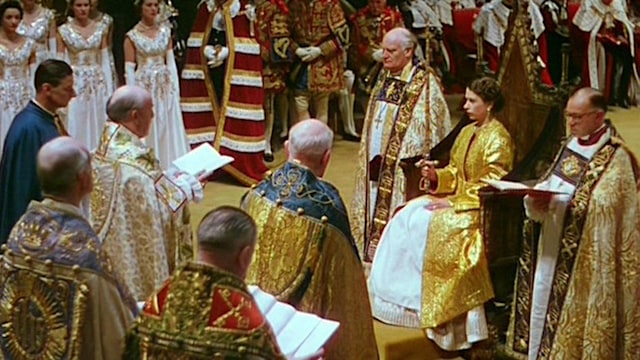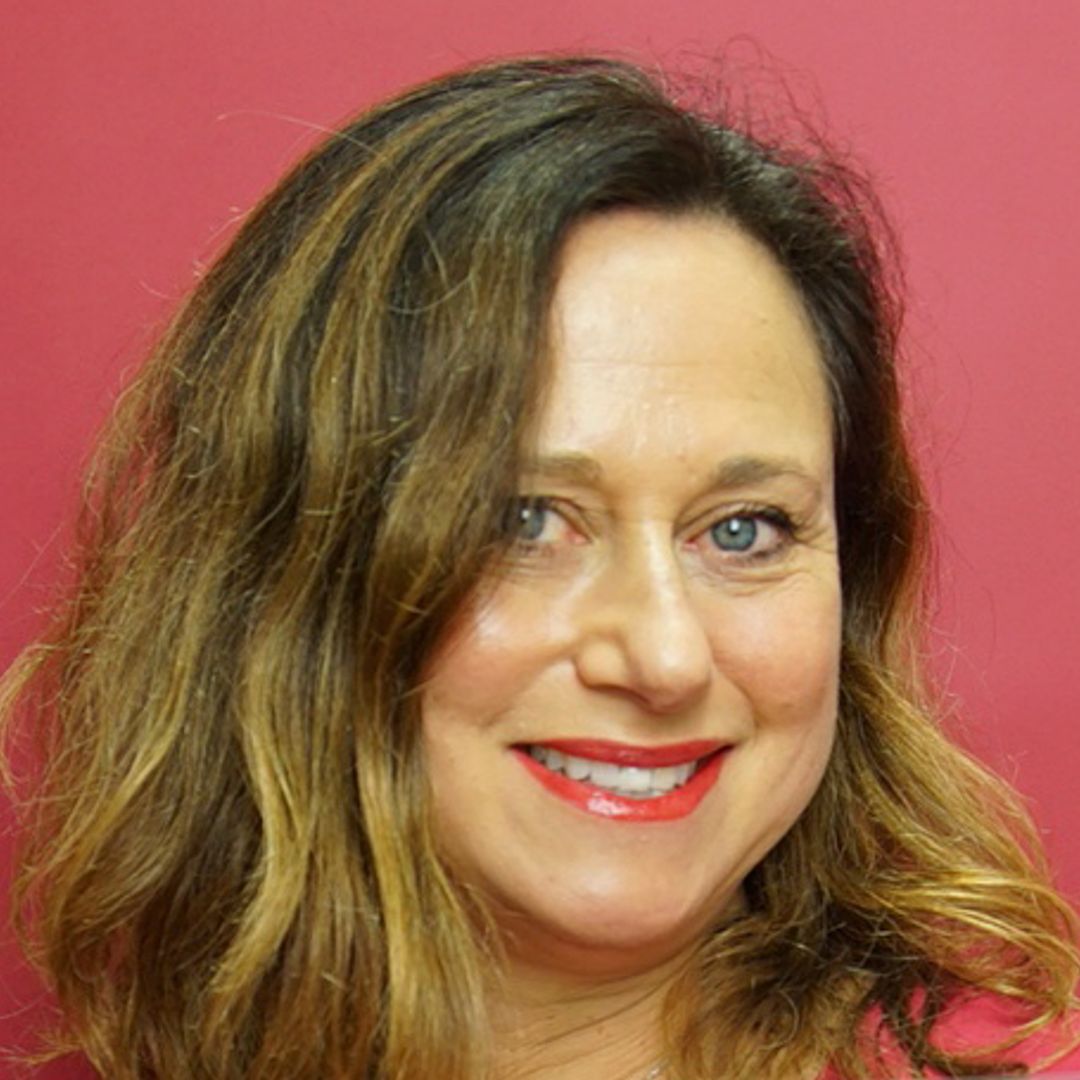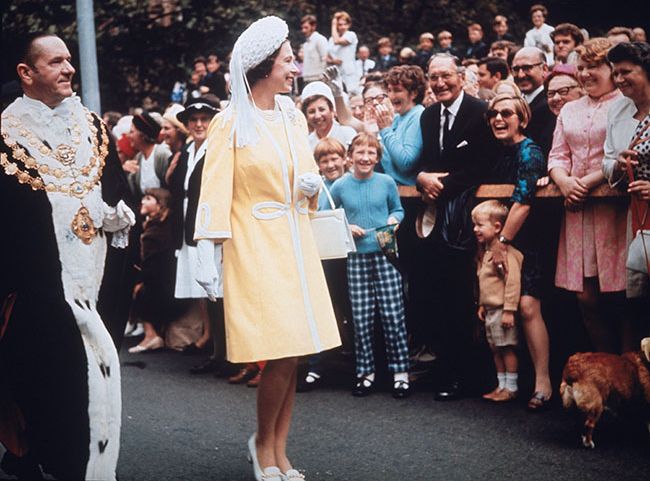As Queen of 15 realms and Head of the Commonwealth, Elizabeth II was the most travelled monarch in British history. She visited more than 120 countries across the globe on more than 271 overseas trips, and she famously began her reign while on tour in Kenya when her father George VI died.
MORE: Royal mourners on why they felt compelled to see the Queen lying in state after long queue
As well as travelling to 51 of 54 Commonwealth countries on more than 200 trips, she visited dozens more at the request of the Government, including Libya, Iran, Nepal, Thailand, Chile, Mexico, Russia and China.
WATCH: Queen Elizabeth II's most memorable moments with her family
By the time she gave up overseas travel in 2015 after a last state visit to Germany and a trip to Malta, she had flown some 1,032,513 miles – the equivalent of 42 times around the globe.
MORE: Prince Harry, Meghan Markle and Prince Andrew to miss state event - details
SEE: The royal family share heartwarming family photos in touching tribute to the Queen
Her longest trip was a 44,000-mile Commonwealth tour in 1953, along with 12 tons of luggage, while the country that she visited the most is Canada with 27 trips, followed by Australia, with 16.
Although famously politically neutral, Her Majesty played a vital diplomatic role. In 1961, she travelled to Ghana amid fears for her safety at a time when the country’s President, Kwame Nkrumah, was under threat of assassination. As concern grew over his ties to the Soviet Union and the potential withdrawal of his country from the Commonwealth, the monarch launched a major charm offensive.
She famously took to the dancefloor with the President at a farewell ball in Accra – a deeply symbolic moment at a time when the apartheid regime controlled South Africa and America was still divided by segregation laws. Her hugely successful visit ensured that Ghana was to remain in the "family of nations".
During her long reign, she met 13 out of 14 US Presidents – she was expecting Prince Edward in 1963 when Lyndon B Johnson took office – and hosted visiting world leaders well into her 90s.
Million Mile Monarch
In the final years of her life, she welcomed state visits from Spain, the Netherlands, Colombia, Mexico and China as well as from the United States. And over the decades she formed lasting friendships with foreign leaders, including South African President Nelson Mandela, who called her Elizabeth when they spoke on the phone.
But of her achievements on the world stage, the continued unity of the Commonwealth was the proudest of her remarkable reign.
The body comprised just eight countries when it was formed by George VI in 1949, at a time when Britain was dismantling its Empire as former colonies sought independence.
Elizabeth II became Head of the Commonwealth on her accession in 1952, stating at the time: "The Commonwealth bears no resemblance to the empires of the past. It is an entirely new conception built on the highest qualities of the spirit of man: friendship, loyalty, and the desire for freedom and peace."
The Government, wanting to embrace these countries under one unifying banner, could see that the new Queen was critical in achieving it.
Since then, many countries have declared themselves republics but have remained within the Commonwealth, in part due to the Queen’s presence and personality.
Under her stewardship, membership rose to 56 nations by the end of her life and the Commonwealth’s population numbers 2.4 billion. Speaking to world leaders in 2018, at the last Commonwealth Heads of Government Meeting she was to attend in person, Her Majesty praised the "flourishing network", adding: "It is my sincere wish that the Commonwealth will continue to offer stability and continuity for future generations, and will decide that one day the Prince of Wales should carry on the important work started by my father in 1949.
"Put simply, we are one of the world’s great convening powers: a global association of volunteers who believe in the tangible benefits that flow from exchanging ideas and experiences and respecting each other’s point of view. And we seem to be growing stronger year by year. The advantages are plain to see."
Calm and Consistency
There were occasional rumblings of discontent and calls to remove the Queen as head of state over the years – in November 2021, she was replaced in Barbados by a ceremonial President when the Caribbean nation marked 50 years of independence from Britain.
However, most Commonwealth countries that had Her Majesty as ceremonial leader stuck by her. In 1999, when Australian voters were given the chance to remove her as head of state in a referendum, they rejected a republic in favour of maintaining existing links with the British crown.
The Queen was keen for her heirs to share her enthusiasm for the organisation and they have committed to supporting it. The new King – then Prince of Wales, who was named its next leader at that momentous meeting in 2018 – said at the time: "For my part, the Commonwealth has been a fundamental feature of my life for as long as I can remember, beginning with my first visit to Malta when I was just five years old."
At the same gathering, the new Prince of Wales described the Commonwealth as "the mother of all networks", adding: "What this gathering represents is a connection based on empathy, compassion and a shared desire to make our world a better place.
"There is no other network on earth that comes close to this – we must make the most of it, cherish it and protect it for the generations to come, who will build on it."
The Duke and Duchess of Sussex also briefly served as president and vice-president of the Queen’s Commonwealth Trust, joining Her Majesty to meet an international roster of Queen’s Young Leaders at Buckingham Palace in 2018.
Duty and Devotion
The Queen's steadfast devotion over the years saw her attend 23 out of the 25 Commonwealth Heads of Government Meetings held since 1971. At the final one she attended, in London, she hosted a dinner for foreign leaders in the Picture Gallery of the Palace, where the President of Ghana raised a moving toast in her honour.
Nana Addo Dankwa Akufo- Addo said: "It falls upon me to express the depth of our collective regret that she will no longer automatically be present at our proceedings.
"The organisation will undoubtedly be all the poorer for it. We will miss her inspiring presence, her calm, her steadiness and, above all, her great love and belief in the higher purpose of this Commonwealth of nations in its capacity to be a force for good."
He praised: "Her Majesty’s legendary ability to put you at ease" as well as her "lightness, her style and the sheer joy with which she carries out her duties".
"It is my fervent hope that the deep love she has shown for this association will continue to light the way for all of us," he said. "She will always be an icon of the Commonwealth."
Make sure you never miss a ROYAL story! Sign up to our newsletter to get all of our celebrity and royal news delivered directly to your inbox.


